Popular Articles
 These Foods May Naturally Reduce SwellingIn This Article
Most people think of drugs and herbs when diuretics are mentioned. However, foods can also be diuretics too. Foods that can help reduce swelling are watermelon, tomatoes, cucumber, cranberry juice, carrots, eggplant, artichoke, celery, grapes, and asparagus.
Edema is the abnormal accumulation of excess fluid in the body. This shows up as swelling underneath the skin in one or more areas of the body. Therefore, swelling or edema occurs when excess fluid builds up in the body and this is caused by water retention. It may be caused by aging blood vessels that lose their elasticity. Edema is also a common occurrence during pregnancy. Furthermore, it can be a sign of other health conditions that may include heart failure and diabetes. Treatment of edema typically consists of diuretics. Diuretics help in the removal of excess fluid through increased urination. A diuretic can be food, a herb, or a drug. Diuretics help by removing salt (sodium) and water from the body. They work because they prevent the kidneys from re-absorbing sodium back from the fluid that is passed out as urine. With sodium left in the fluid built up in the kidneys, the osmotic pressure prevents the reabsorption of water into blood circulation. This consequently reduces the amount of fluid flow through your blood vessels, and alternately reduces pressure on the walls of your arteries. The removal of sodium, chloride, and water from the body is somewhat difficult. For one, other ions besides sodium and chloride are removed along with water. Minerals such as calcium and potassium are filtered out of the blood and into the kidney nephron where they are also lost in the urine fluid. Basically, diuretics increase the volume of urine excreted from the body, subsequently reducing the number of excess fluids built up in the body. Foods may have diuretic properties too. There are two ways in which foods can increase diuresis and reduce swelling. First, foods may contain phytochemicals with diuretic properties. The caffeine found in cocoa, tea leaves, yerba mate, and coffee is a good example of foods in this class. Alternatively, foods with high water content can also increase urination and the rate of detoxification. The increase in fluid intake from this food signals the body to release hormones that prevent the reabsorption of water from the kidneys. This translates directly to diuresis. Natural DiureticsSome natural foods contain diuretics that help to reduce edema. Most of these natural diuretic foods have high water content and they usually aid in the removal of excess fluids that build up in the body to cause swelling. The following foods may naturally reduce edema. Watermelon
Also, citrulline an amino acid found in watermelon can relax blood vessels, an ability that can prevent fluids leaking out of those vessels and collecting in the surrounding tissues. Overall, watermelon is cleansing, diuretic, alkalinizing, and mineralizing. It also helps in promoting intestinal elimination and removal of toxic wastes from the body. Dr. Ariel Policano, a naturopathic physician, stated that watermelon helps the liver to process ammonia, which is a toxic nitrogen waste product, by changing it into urea which is safely excreted. Therefore, watermelon is not only a diuretic but a detoxifier. Tomatoes
These antioxidants prevent the damages caused by free radicals to body tissues leading to premature aging and many chronic degenerative diseases. When these free radicals damage the walls of the blood vessels, they can cause the leakage of fluids and therefore, local swelling. They have low calories and low cholesterol making them unique for people watching their weights. Cucumber
It is also known to contain a high amount of silicon and sulfur. Silicon and sulfur induce the kidneys' the elimination of uric acids. This contributes to an efficient system of waste removal from the body and relief from being overstuffed and bloated. Its action of uric acid removal makes it good for arthritis relief too. Caffeic and ascorbic acid are also present in cucumber and they can contribute to its diuretic effect. Swelling around the eyes can also be treated with cucumber. Cucumber is a good example of a potassium-sparing diuretic because it is also rich in potassium. Cucumbers contain antioxidants such as beta-carotene and alpha-carotene, vitamins A and C, zeaxanthin, and lutein, all of which reduce the effects of aging. Cranberry Juice
Some of the phytochemicals present in cranberry include catechins, triterpenoids, quinic acid, hippuric acid, anthocyanins. In a study presented in 2002, at the Experimental Biology conference, the researchers showed that an 8 oz. serving of cranberry juice was enough to prevent the bacteria, E. coli, from sticking to the bladder cells and for treating bladder infections. A study published in 2002 in the Journal of the American Medical Association showed that cranberry PACs were able to stop the linkage of both resistant strains and antibiotic susceptible bacteria. Carrots
These phytochemicals can promote detoxification and increase the rate of metabolism and in the process, discharge vitamins and minerals. Part of the detoxification achieved by these phytochemicals in carrot is done through diuresis. Also, the alkaline elements richly present in carrots can invigorate the blood and promote the right pH balance in the body. Eggplant
Eggplant improves the circulation of blood and reduces toxic heat. Its diuretic properties make it useful in the treatment of hypertension and edema. The major phytochemicals found in eggplants are flavonoids. They are also loaded with other antioxidants, fiber, minerals, and vitamins. Drinking eggplant water reduces bloating caused by high water and fluid being held up in the body. They are also recommended as weight loss foods for people who want to get rid of the band of fat found around the waist. Artichoke
Some of the phytochemicals found in artichoke are caffeic acid, cynarin, and flavonoids. They are also a rich source of several nutrients, vitamins, and minerals that help to drive normal bodily functions. The overall antioxidant capacity of artichoke flower heads is one of the highest for vegetables. The cynarin contained in artichoke improves the flow of bile which reduces the number of excess fluids and consequently reduces swelling. Artichokes should be eaten in raw form because heat destroys the cynarin contained in the artichoke. Herbs made of a leaf extract from artichokes have been used to improve bile release and for various liver problems. Celery
When excess uric acid crystals collect in the joint, as in the case of gout, celery seeds can be particularly helpful. Therefore, celery is especially recommended for treating gout edema. However, celery contains more sodium than most other vegetables. Fortunately, the sodium is counterbalanced by the high potassium it contains. Studies have revealed that the quantity of sodium in celery is not considered even for salt-susceptible individuals. The major phytochemicals present in celery are coumarins. Studies reveal that coumarin compounds decrease blood pressure and improve the vascular system. Celery is recommended for treating bladder disorders, cystitis, and other kidney problems because of its diuretic actions. Grapes
Phytochemicals found in grapes include phenolic acids, flavonols, flavon-3-ols, myricetin, peonidin, flavonoids, resveratrol, and anthocyanins. Due to their rich source of potassium and low level of salt, grapes can remove toxins from the body through increased urine flow, and for this reason, it is traditionally used for treating kidney disorders. Due to the fiber in the skin and seeds, the grape has a cleansing effect. Grapes also help in the stimulation of liver functions and also bile secretion. Asparagus
Asparagine, an amino acid found in asparagus, is an efficient diuretic and has been known to treat swelling, arthritis, rheumatism, and PMS-related water retention. The fiber in asparagus helps in cleaning out our gastrointestinal tract. Benefits of diureticsDiuretics are useful drugs and medicinal agents. They are primarily used to treat edema but they can also be used to manage other medical conditions caused by or causing abnormal retention of water in the body. Therefore, diuretics are effective for treating edema caused by renal dysfunction which may include nephrotic syndrome, acute glomerulonephritis, and chronic renal failure. Diuretics can also be used to treat kidney stones. They are also useful for treating some forms of glaucoma. Diuretic drugs, herbs, or even foods may be used for mild hypertension or combined with other antihypertensive drugs to treat more severe forms of hypertension. Dangers of DiureticsThe most common side effect of diuretics is hypokalemia. This describes potassium deficiency caused by low levels of the mineral in the body. Hypokalemia can result when diuretics remove potassium from the body. Except for potassium-sparing diuretics, all diuretics can deplete the body of potassium. If hypokalemia is left untreated, it can severely impact cardiovascular health. Consuming foods that are high in potassium like oranges and bananas or taking potassium supplements can help to maintain the level of potassium in the body. Therefore, these foods should be combined with diuretic foods. Over the years, doctors believe taking diuretics can increase the risk of having diabetes which itself can consequently lead to strokes and heart attacks. However, a recent study found no such risks. This study showed that though diuretics can raise the risk of diabetes, the rate of death from heart attacks or strokes was about 15 percent lower in patients getting a diuretic compared to those that were given dummy pills. Usually, older patients may be more vulnerable to the dangers of diuretics and may require lower doses and close observation, but diuretics are regularly prescribed to them. Most of these side effects of diuretics are much lower with diuretic foods. This is because unlike drugs and even herbs, foods contain other nutrients that can reduce the harm done by the diuretic phytochemicals in them. Sourceshttp://www.mayoclinic.com/health/diuretics/HI00030 http://www.rxlist.com/script/main/art.asp?articlekey=94169&page=4 http://www.dietobio.com/aliments/en/tomato.html
[+] Show All
|
| Next Article: Worst Foods for Edema |





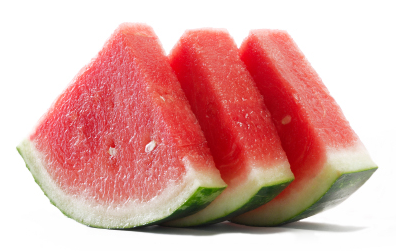 Watermelon has a very high water content of about 92%. It contains antioxidant flavonoids such as lutein, lycopene, beta-
Watermelon has a very high water content of about 92%. It contains antioxidant flavonoids such as lutein, lycopene, beta-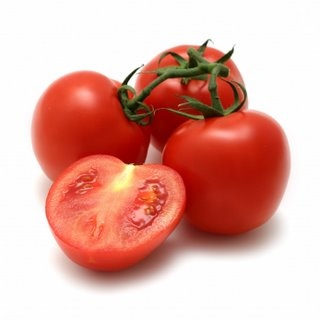 Naturally, tomatoes have about 90% water content. They also contain antioxidants such as lycopene, beta-carotene,
Naturally, tomatoes have about 90% water content. They also contain antioxidants such as lycopene, beta-carotene, 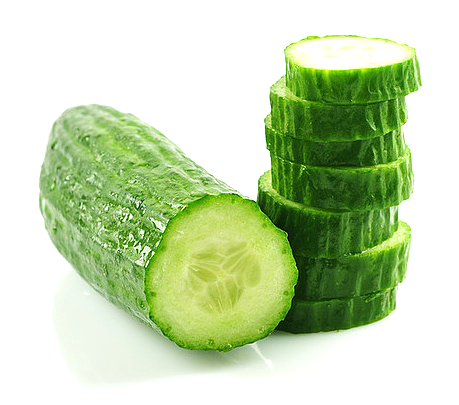 Cucumber contains a high water content which makes it a good choice as a natural diuretic.
Cucumber contains a high water content which makes it a good choice as a natural diuretic. 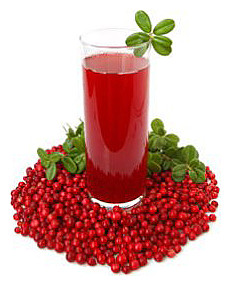 Cranberry juice is traditionally used to treat urinary tract infections. This is mainly because of its antibacterial and diuretic properties. One notable benefit of the diuretic effect of cranberry is that it does not drain the body of potassium.
Cranberry juice is traditionally used to treat urinary tract infections. This is mainly because of its antibacterial and diuretic properties. One notable benefit of the diuretic effect of cranberry is that it does not drain the body of potassium.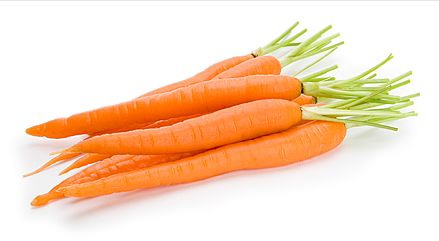 Carrots are widely regarded as one of the most effective diuretic
Carrots are widely regarded as one of the most effective diuretic 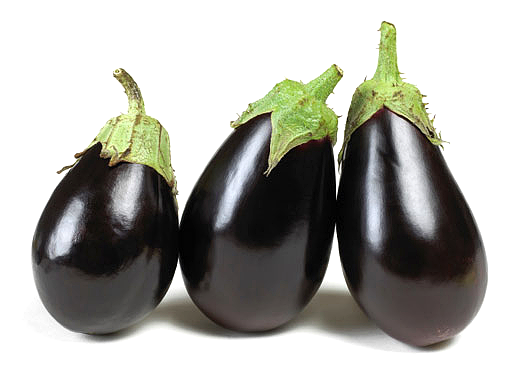 There is sufficient evidence that suggests the diuretic importance of eggplant. Its high water content is an obvious example.
There is sufficient evidence that suggests the diuretic importance of eggplant. Its high water content is an obvious example.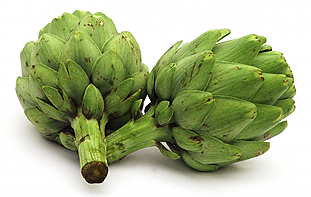 Artichoke is an excellent diuretic food. This vegetable is especially known to improve kidney function.
Artichoke is an excellent diuretic food. This vegetable is especially known to improve kidney function.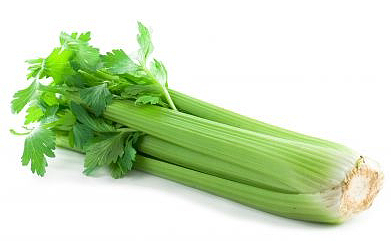 Celery seed speeds up uric acid excretion and increases the rate of urine production. These are how celery detoxifies the body.
Celery seed speeds up uric acid excretion and increases the rate of urine production. These are how celery detoxifies the body.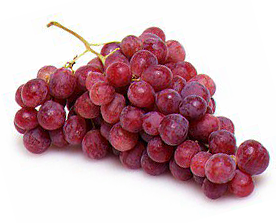 The grape has high water content and it is also rich in potassium. Both of these properties make it an effective and unique diuretic food.
The grape has high water content and it is also rich in potassium. Both of these properties make it an effective and unique diuretic food.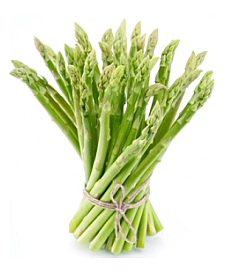 Asparagus packs low calories and contains a lot of vitamins and minerals such as folic acid,
Asparagus packs low calories and contains a lot of vitamins and minerals such as folic acid,